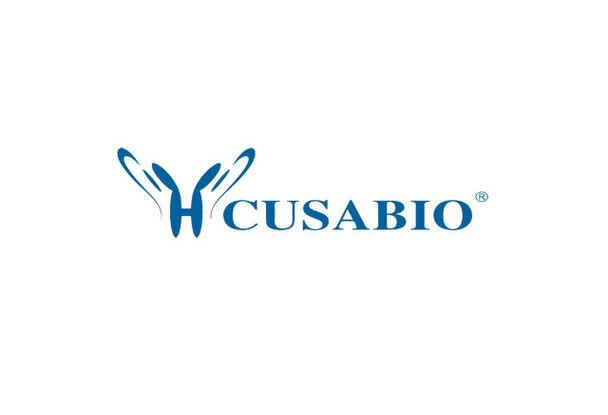Cusabio Active Proteins
Recombinant Human C-C motif chemokine 2 protein (CCL2) (Active) | CSB-AP000821HU
- SKU:
- CSB-AP000821HU
- Availability:
- 5 to 10 Working Days
Description
Recombinant Human C-C motif chemokine 2 protein (CCL2) (Active) | CSB-AP000821HU | Cusabio
Protein Description: Full Length of Mature Protein
Alternative Name (s) : HC11, Monocyte chemotactic and activating factor, MCAF, Monocyte chemotactic protein 1, MCP-1
Gene Names: CCL2,MCP1,SCYA2
Research Areas: Immunology
Species: Homo sapiens (Human)
Source: E.Coli
Tag Info: Tag-Free
Expression Region: 24-99aa
Sequence Info: QPDAINAPVT CCYNFTNRKI SVQRLASYRR ITSSKCPKEA VIFKTIVAKE ICADPKQKWV QDSMDHLDKQ TQTPKT
Biological Activity: Fully biologically active when compared to standard. The biological activity determined by a chemotaxis bioassay using human monocytes is in a concentration range of 10-100 ng/ml.
MW: 8.7 kDa
Purity: >96% as determined by SDS-PAGE and HPLC.
Endotoxin: Less than 1.0 EU/µg as determined by LAL method.
Relevance: Chemotactic factor that attracts monocytes and basophils but not neutrophils or eosinophils. Augments monocyte anti-tumor activity. Has been implicated in the pathogenesis of diseases characterized by monocytic infiltrates, like psoriasis, rheumatoid arthritis or atherosclerosis. May be involved in the recruitment of monocytes into the arterial wall during the disease process of atherosclerosis.
PubMed ID: 2923622; 2513477; 2465924; 2518726; 2357211; 1661560; 8107690; 10918580; 14702039; 15489334; 2648385; 2322286; 2071154; 8195247; 8627182; 8898111; 9792674; 9837883; 10587439; 10529171; 15033992; 23233732; 1857712; 8639605; 8989326; 16352737
Notes: Repeated freezing and thawing is not recommended. Store working aliquots at 4℃ for up to one week.
Function: Chemotactic factor that attracts monocytes and basophils but not neutrophils or eosinophils. Augments monocyte anti-tumor activity. Has been implicated in the pathogenesis of diseases characterized by monocytic infiltrates, like psoriasis, rheumatoid arthritis or atherosclerosis. May be involved in the recruitment of monocytes into the arterial wall during the disease process of atherosclerosis.
Involvement in disease:
Subcellular Location: Secreted
Protein Families: Intercrine beta (chemokine CC) family
Tissue Specificity: Expressed in the seminal plasma, endometrial fluid and follicular fluid (at protein level) .
Paythway: Chemokinesignalingpathway
Form: Lyophilized powder
Buffer: Lyophilized from a 0.2 µm filtered PBS, pH 7.4
Reconstitution: We recommend that this vial be briefly centrifuged prior to opening to bring the contents to the bottom. Please reconstitute protein in deionized sterile water to a concentration of 0.1-1.0 mg/mL.We recommend to add 5-50% of glycerol (final concentration) and aliquot for long-term storage at -20℃/-80℃. Our default final concentration of glycerol is 50%. Customers could use it as reference.
Uniprot ID: P13500
Uniprot Entry Name: CCL2_HUMAN
HGNC Database Link: HGNC
UniGene Database Link: UniGene
KEGG Database Link: KEGG
STRING Database Link: STRING
OMIM Database Link: OMIM









